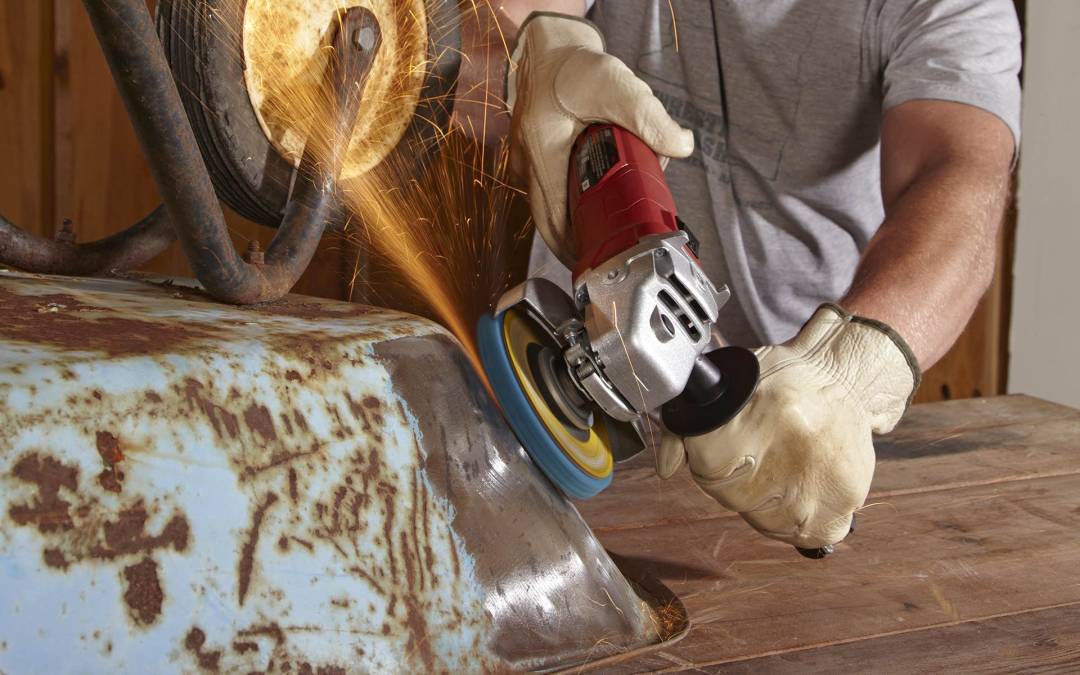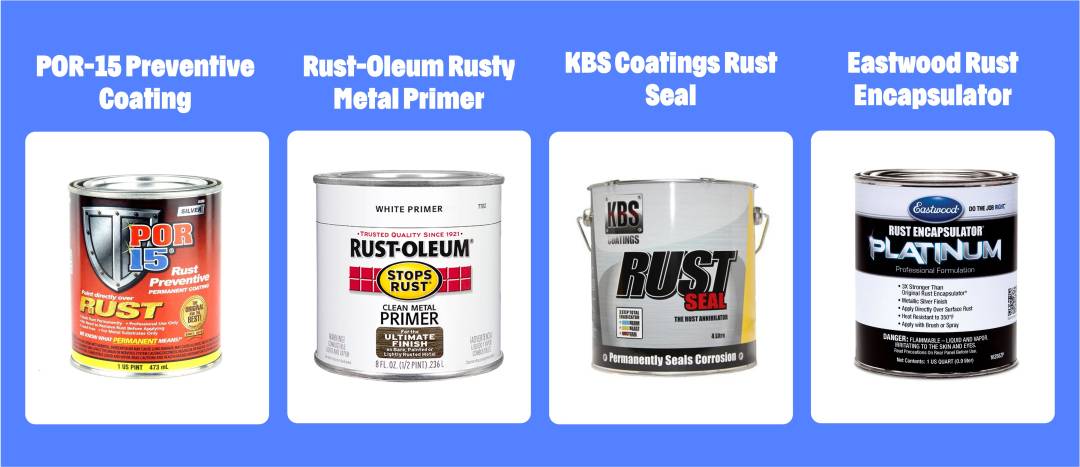Rust Prevention and Treatment for Your Car in Storage
The ultimate guide to rust prevention and treatment for your car. Prevention sprays, removal methods, and expert tips for classic and modern vehicles.
We've created definitive guide for anyone concerned about their vehicle being damaged by rust whilst in car storage.
This guide covers everything you need to know about rust prevention, removal, and treatment for your car. Read on for tips, tricks, and product recommendations to help you effectively combat rust.
Find Car Storage
Browse long term Car Storage for rent
Find Car StorageRust Prevention Sprays
Rust sprays create a barrier to shield your vehicle's metal surfaces from moisture and oxygen. Here are some of the top sprays that make rust proofing a car quick and easy:Rust-Oleum Rust Reformer Spray
Prevents new rust. It also converts existing rust into a paintable, black, protective surface. This is an effective way to protect surfaces from rust. It's perfect for addressing rust spots while preventing new ones from forming.Krown Rust Protection Spray
Designed with classic car enthusiasts in mind, this rust prevention spray offers long-lasting protection against corrosion. Its oil-based formula penetrates deep into crevices, displacing moisture, and providing a barrier against rust.WD-40 Specialist Long-Term Corrosion Inhibitor
A reputable name in rust prevention. It forms a protective shield against rust and corrosion. This makes it an ideal choice for classic and modern cars.Follow these straightforward steps to get the most out of your rust prevention spray:
- Clean your car thoroughly, ensuring all dirt, grease, and grime are removed.
- Inspect your vehicle for any existing rust. If you find any, treat it using a rust converter or remover before applying the rust prevention spray.
- Shake the spray can.
- Apply a thin, even coat to the entire surface (or just the rust-prone areas)
- Follow the manufacturer instructions.
- Allow the spray to dry according to the recommended drying time before using your car or applying any additional coats.
Related
High Security Car Storage: Smart Cams To Protect Your Motor
Car Remove Rust Techniques
Rust can be stubborn, so here are some rust removal techniques (and when to use each one)- Mechanical Removal: For surface rust, mechanical removal is often the most straightforward method. This can be done using sandpaper, wire brushes, or abrasive wheels. Be sure to start with a coarse grit and gradually move to a finer grit to avoid damaging the underlying metal.
- Chemical Rust Removers: For more extensive rust, chemical rust removers can be highly effective. These products often contain phosphoric or oxalic acid, which dissolves rust without harming the base metal. Always follow the manufacturer's instructions and safety precautions when using chemical rust removers.
- Electrolysis: If you're dealing with rust on small, intricate parts, electrolysis can be a great option. This method involves submerging the rusted part and a sacrificial metal in an electrolyte solution and applying an electric current. The rust is transferred from the part to the sacrificial metal, leaving the original metal rust-free.

Rust Proofing Techniques
A proactive approach to rust protection is vital to keep your car in top condition.- Undercoating: Undercoating provides a durable, rubberised barrier that protects your car's undercarriage from moisture, salt, and road debris. It can be applied as an aerosol or with a specialised spray gun.
- Cavity Wax: Protects hidden parts of your car. These areas include door panels, frame rails and rocker panels. It penetrates hard-to-reach places for optimal protection. The wax forms a protective barrier against moisture and oxygen, preventing rust from forming.
- Electronic Rust Protection: A modern method of rust prevention. It involves installing a small electronic device on your vehicle. This device emits a weak electric current throughout the car's metal body, disrupting the electrochemical reaction that causes rust. Though still a relatively new technology, electronic rust protection has shown promising results in preventing rust formation.
Related
8 Easy Tips for Storing Your Car Long Term
Car Paint That Prevents Rust
Rust-inhibiting paints can be a valuable addition to your rust prevention arsenal. These paints contain additives that slow down or prevent the formation of rust on your car's metal surfaces.- POR-15 Rust Preventive Coating: This high-performance paint provides a tough, long-lasting barrier against rust and corrosion. POR-15 is designed to be applied directly over rusted surfaces, making it an excellent choice for restoring older vehicles.
- Rust-Oleum Automotive Rusty Metal Primer: Specially formulated to bond securely to rust. This creates a surface that is compatible with many auto paints. It helps to prevent further rust formation and provides a solid foundation for a topcoat.
- KBS Coatings RustSeal: RustSeal is a durable, UV-resistant paint that's designed to provide long-lasting protection against rust and corrosion. It's a versatile paint that can be used on various surfaces, including metal, fiberglass, and concrete.
- Eastwood Rust Encapsulator: This paint is designed to encapsulate and seal existing rust, preventing it from spreading further. It's compatible with most topcoats and provides a durable, long-lasting finish.

Before applying rust-inhibiting paint, follow these steps to prep your car:
- Clean the surface thoroughly, removing dirt, grease, and grime.
- Remove any loose rust or paint using a wire brush or sandpaper.
- Apply a rust converter if needed, following the manufacturer's instructions.
- Mask off any areas you don't want to paint, and protect your work area with drop cloths or plastic sheeting.
With the right rust-inhibiting paint and proper preparation, you can keep your car's metal surfaces protected and looking great. In our final section, we'll discuss rust treatments specifically tailored for classic cars and how to maintain their rust-free status
Related
SORN Explained: How To Use Car Storage In The UK
Ongoing Maintenance and Care
The best rust treatment for classic cars is ongoing maintenance and care. Here are some essential maintenance tips to ensure your vintage vehicle stays in top condition.- Regular Inspections: Routinely inspect your classic car for signs of rust. Pay close attention to areas prone to moisture build up, such as wheel arches, undercarriage, and door sills. Address any signs of rust immediately to prevent further damage.
- Frequent Washing and Waxing: Wash your car regularly to remove dirt, grime, and salt that can contribute to rust formation. Apply a high-quality wax to create a protective barrier against moisture and contaminants.
- Proper Storage: Store your classic car in a dry, well-ventilated space, ideally a climate-controlled garage. If necessary, use a dehumidifier to maintain optimal humidity levels. Additionally, use a car cover designed for classic cars to protect against dust, moisture, and UV rays.
- Annual Rust Proofing: Schedule annual rust proofing treatments, such as undercoating, cavity wax applications, or professional classic car rust proofing services. Regular rust proofing can significantly prolong the life of your vehicle and help maintain its value.
- Repair paint chips and scratches quickly. This will prevent moisture from reaching the metal surface and causing rust. Use a touch-up paint that matches your car's original color and finis
Find Car Storage
Browse long term Car Storage for rent
Find Car StorageAnthony
Written 3rd May 2023
